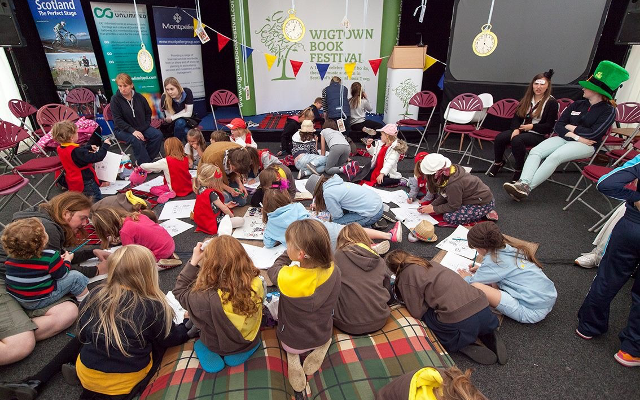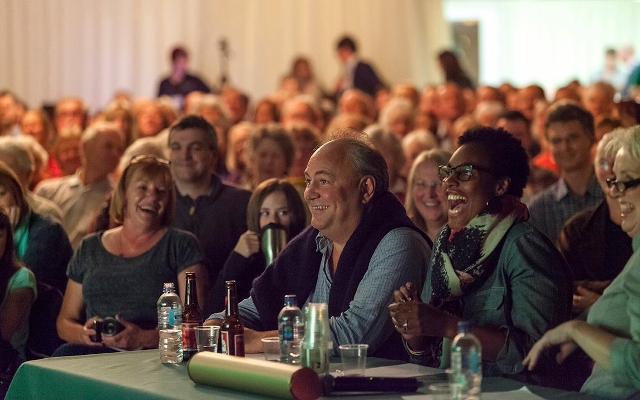Wigtown Book Festival
Scotland’s National Book Town

By Adrian Turpin, Artistic director, Wigtown Book Festival.
Earlier this year, the Sunday Times chose its 10 best places to live in Scotland. Creeping in at number 10 in the list was Wigtown, a tiny town of 900 people, in the wilds of Dumfries & Galloway. The newspaper remarked on the natural beauty of the region, the sense of space and the dazzling night skies. Above all, however, it noted: “Wigtown gets our vote for its extraordinary turnaround since winning the right to call itself Scotland’s National Book Town in 1998.”
 It’s true, in the 1990s Wigtown was in poor way following the closure of the local distillery (since reopened) and creamery. It was a shadow of the proud market town it had once been - indeed, one of the reasons it beat five other communities to become Scotland’s Book Town was that its need was so obvious. The other was local people’s clear-sighted engagement with the idea that culture could help improve the Royal Burgh’s fortunes. Wigtowners chose their own fortune and the town’s dozen bookshops today are evidence that the dream lives on.
It’s true, in the 1990s Wigtown was in poor way following the closure of the local distillery (since reopened) and creamery. It was a shadow of the proud market town it had once been - indeed, one of the reasons it beat five other communities to become Scotland’s Book Town was that its need was so obvious. The other was local people’s clear-sighted engagement with the idea that culture could help improve the Royal Burgh’s fortunes. Wigtowners chose their own fortune and the town’s dozen bookshops today are evidence that the dream lives on.
This May sees the 20th anniversary of the Book Town project, while in September we will be holding the 20th birthday of Wigtown Book Festival. What began as a low-key weekend is now a 10-day, 250-plus-event jamboree that draws thousands of visitors from Scotland and afar. Festival-goers come to hear some of the nation’s finest writers and thinkers, as well as experience theatre, film, music and visual arts. But I hope that they also leave with a sense of a very special place and people. More than 100 local volunteers are essential in delivering the event, and their friendliness and good humour is one of the reason so many of them come back time and time again. Wigtown’s story is unique. Yet it also illustrates some important general truths about the way Scotland’s creative sector is making communities better places in which to live.

As Wigtown Book Festival’s artistic director, I’m often asked:
“What do you do for the rest of the year?” I try not to grit my teeth as I reply. In fact, our year-round work takes us into care homes, schools and prisons. We mentor young people and give them support to programme their own festival. Working with the Edinburgh charity Open Book, we run regular reading sessions for hard-to-reach and excluded groups.
Don’t knock the economic impact either. Our activities generate more than £3m for the regional economy, with a return of £23 to every £1 of public investment. The great news is that similar things are happening all round Scotland. For any festival to work, it must be a celebration of art and of life, a temporary moment of togetherness. In Wigtown, we will be celebrating as hard as anyone this September, and we would love you to join us. But perhaps it’s also worth thinking of a festival as a tool for wider change, a resource from which all sorts of groups and individuals can draw and benefit. In more than one sense, ours is a community built on books
Wigtown Book Festival takes place from 21-30 September 2018
With thanks to Adrian Turpin and everyone at Wigtown Book Festival
Create an event with world changing ideas: Conventionscotland.com | legends@visitscotland.com